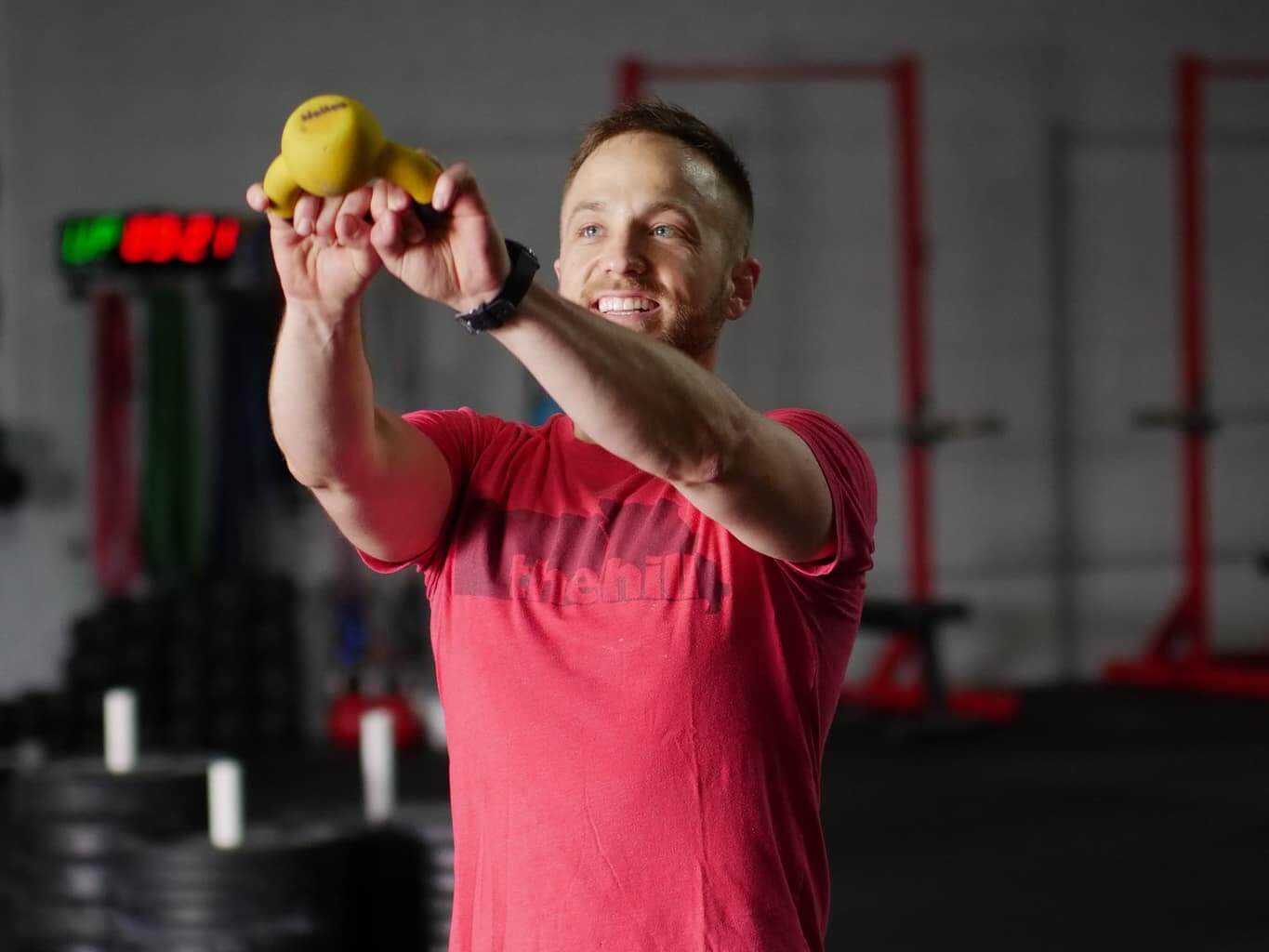Our theme this month is “Better is Better.” It started off as “less is more” but, universally, that’s not the case. But, better is always better.
I’d like to make the case for working out less. Kind of weird for a guy who owns a gym to advocate for less working out, so let me rephrase: If you’re struggling to get in the recommended 3-5 hours of physical activity, by all means, WORK OUT MORE. If, like many people who make exercise a lifestyle habit, you find yourself feeling like you need more work to see results – I’m talking to you.

This is my first public before/after picture I’ve ever posted. Admittedly I’m a little embarrassed, but I think it illustrates a very important point: You don’t get fit from working out. You get fit by recovering from working out.
In the picture on the left, I was training for 10-12 hours per week with each training session lasting 2-2.5 hours. The training sessions involved some type of olympic lift, a strength lift, and a conditioning piece. Sometimes this was followed up with additional “accessory” work. This work looked a lot like MisFit Athletics, The Outlaw Way, or CompTrain. Please bear in mind that there is nothing wrong with these programs. I simply didn’t pay mind that, in order to train competitively, I must also recover competitively.
In the picture on the right (taken in the same room, against the same wall, on June 7, 2017), I have been training the same way for the last 11 months – 5 workouts a week, 1 hour each. I do the gym’s CrossFit WOD (typically a version of the Development Programming Track) two weeks before the rest of the gym. I look at the WOD about 10 minutes before we do it and do whatever it says. If it says run a mile, I run a mile. If it says do 5×3 Front Squat, that’s what I do. I rarely do any extra pieces aside from some shoulder or glute rehab and activation.
I work really hard for the hour, but only “empty the tank” once every 10 days or so. If I’m not feeling great, I scale the intensity, weight, and movements way down. If I’m feeling great, I go all out. I try to always work out with someone else to gauge my effort. I always try to finish within the day’s “intent” to ensure I’m not slugging through a workout with too heavy a weight or too complex a movement. I focus on intensity and proficiency over weight and complexity.
The Stats
- Down ~4% body fat
- Average sleep up to 7 hours from 5
- Average weight 170 from 180
- Strength numbers (squat, deadlift, snatch, and clean) down an average of 7%
- Dropped 2 inches from waist
- PR Fran by 4 seconds
The Intangibles
- I’m rarely sore, nothing is achy
- Mood has improved
- Increased productivity
- Rarely need to “mobilize” – I do the same 10 minute warm up everyday and hit some movement-specific stuff maybe twice per week
- Training feels more like fun and less like a chore
What Changed?
Last year I decided to do an experiment wherein I placed twice as much effort into recovery as I did training. I figured out sleep – I use an eye mask, ear plugs, sun lamp, and sleep in a cold room. I make every attempt to go to bed and wake up at the same time everyday. I try to eat veggies, protein, fat, and carbs from whole foods that I prepared at every meal. I rarely use protein or carb supplements, “bars” or “shakes”. Oddly enough, you’d probably consider my diet “cleaner” in my before picture than the after (I opt for random treats and desserts these days). I cut out wine (to aid in sleep quality) during weekdays. I quit drinking coffee after 11:00am.
For my training, my goal was to fully submit to a program; to not react to a bad day of training by adding more. My goal was to not heap on “extra” work or use “lack of volume” as an excuse for poor quality and intensity on my part. The plan was to not use my knowledge of training (or perceived knowledge) as a way to micro-manage my own work; to not get distracted by Instagram programs and coaches.
I feel better than I have in years, I’m sleeping better, and I’m making better food choices. Training is fun – and less stressful – again. I’m no longer saying things like: “but I didn’t squat/do core work/do double unders/do cardio/do more today.” I’m just doing hard work to the best of my ability for one hour.
There’s a temptation as an athlete moves from novice to intermediate to believe that what you do is important. That there’s some special programming or combination of strength and cardio that finally get you to the place you want to be. As the intermediate athlete advances, he or she realizes that what isn’t nearly as important as why and how. And what you do is definitely secondary to how you recover from it.

